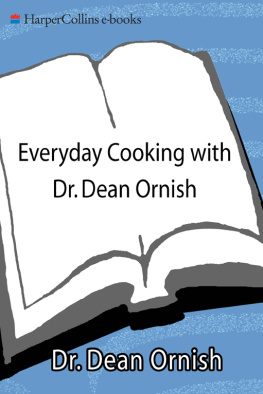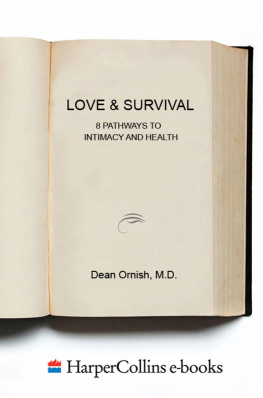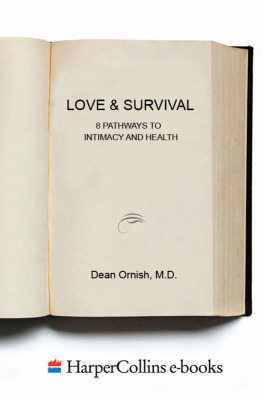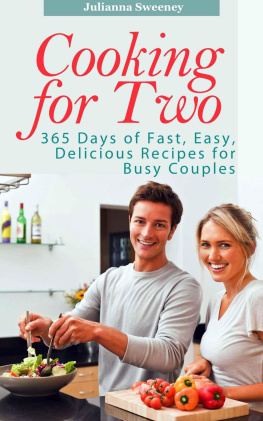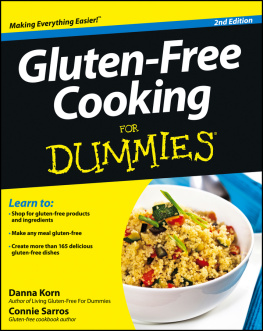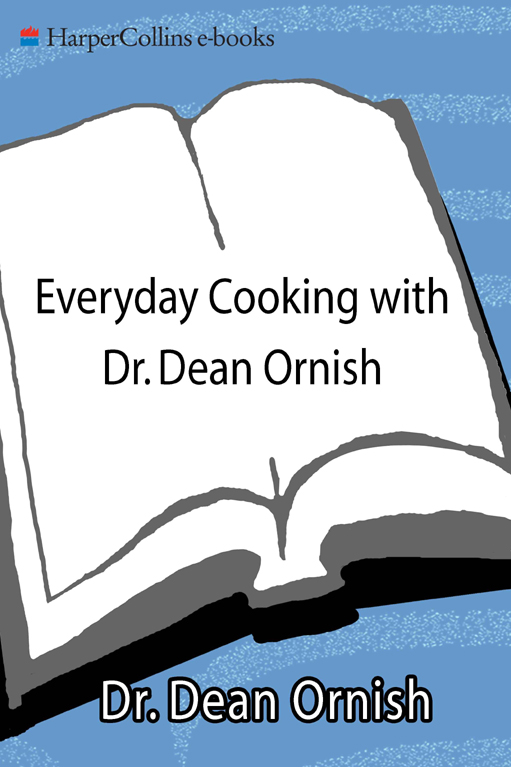If you have coronary heart disease, obesity, or other health problems, please consult your physician before beginning this program. Each person is different, and decisions affecting your health are personal, ones that you should make only after consulting with your physician and other health professionals. If you are taking medications, your physician may wish to decrease or discontinue some or all of these if your clinical status improves. Do not make any changes in your medications without first consulting your doctor; it can be very dangerous to suddenly stop taking some drugs.
No treatment program, including drugs, surgery, or lifestyle changes, is effective for everyone. Some people may not lose weight or may become worse despite any treatments or lifestyle changes.
This book is based on the latest scientific information. Since science is always evolving, further understanding of human nutrition may lead to changes in the recommendations contained here.
As in my previous books, one of my goals in writing this book is to help increase your understanding of how powerful lifestyle choices can be in affecting your health and well-being. Another goal is to strengthen the communication between you and your physician and other health professionals. In this context, you may wish to share this book with him or her. Discuss it with your doctor so that the two of you can work together more effectively to help you achieve greater health and happiness.
W HY I W ROTE T HIS B OOK
I enjoy reading my mail. I receive thousands of letters every year from people whose lives have improved, often dramatically, when they make the comprehensive dietary and lifestyle changes that my colleagues and I recommend. Since the publication of Eat More, Weigh Less, many have asked for simple, easy-to-prepare recipes with familiar, easy-to-find ingredients.
D ELICIOUS AND N UTRITIOUS
When I first began doing research demonstrating that the progression of even severe coronary artery disease could begin to reverse by making comprehensive changes in diet and lifestyle, there was a lot of misinformation about food. A common misconception was that you had to choose between gourmet high-fat foods that were delicious and beautifully presented and unhealthful, or low-fat foods that were boring and bland and might make you live longeror just make it seem longer.
A few years ago, Molly ONeill of the New York Times, one of the countrys leading food writers, invited me to dinner at her home for an article she was planning, The Nutritionist and the Gourmet. Dr. Marion Nestle, professor and director of nutrition at New York University, and I were the experts on nutrition. Jim Villas and Lydia Shire were the two well-known gourmet chefs. But you dont have to choose between good food and good health. Gourmet chefs can make low-fat foods that are delicious and nutritious.
In my first three books, I wanted to make the recipes as tasty and as beautifully presented as possible, at the same time meeting the nutritional guidelines of my program. Many people tend to associate high-fat foods as being tastier because the great chefs traditionally have worked in the high-fat arena. But its not the amount of fat; its how the food is prepared. High-fat foods can taste bad if theyre prepared poorly, and low-fat foods can taste great if theyre well prepared.
I realized that the best way to make low-fat food taste good was to work with great chefs, even if they werent known for low-fat cooking. Great chefs know how to make great food.
So, I commissioned some of the countrys most celebrated chefsHubert Keller, Wolfgang Puck, Joyce Goldstein, Deborah Madison, Michael Lomonaco, Jean-Marc Fullsackand several others. I told them, Work within these guidelines and see what you can create. (The only chef who ever turned me down was Julia Child, who said in her Julia Child voice, This is not compatible with my philosophy of food!)
I didnt put any limitations on the chefs, in terms of making recipes practical or easy. As a result, the recipes were gourmet, but many were complex and time-consuming to prepare, using unfamiliar or expensive ingredients not available everywhere. One woman wrote me, Where the hell am I going to get chanterelles? And what are chanterelles?
L OW F AT , H IGH F LAVOR
Now, in Everyday Cooking with Dr. Dean Ornish, Ive presented 150 simple, yet extraordinary, recipes that use inexpensive, commonly found ingredients and follow easy, time-saving steps for making fresh, delicious, everyday meals. These recipes are organized into 45 seasonal menus to take advantage of the freshest ingredients. I hope that you find this to be an intensely pleasurable way of cooking and eating based on enhancing the joy of living, not out of fear of dying. These are very sensual foods, because I believe that life is to be enjoyed fully.
This book draws on what my colleagues and I have learned from training others to adapt this program to their own tastes, preferences, and culturesfrom training health professionals and patients at hospitals throughout the country ranging from Harvard Medical School in Boston to Richland Memorial Hospital in Columbia, South Carolina (where cardiologist Joe Hollins, M.D., once told me, Here in South Carolina, gravy is a beverage ) to our work helping to train the chefs at the White House, Camp David, the Navy Mess, and on Air Force One. Weve learned what works.
B EYOND H EART D ISEASE
The implications and the applications of what we are doing go far beyond just reversing heart disease. Clearly, if you can reverse the progression of heart disease, then you can help prevent it. Even though heart and blood vessel diseases still kill more Americans each year than just about every other illness combined, heart disease could be virtually eliminated if we simply put into practice what we already know. That is, if people followed this program.
The most motivating reason for changing your diet and lifestyle, however, is not just to live longer or to reduce the risk of something bad happening years laterits to improve the quality of life right now. I began making these changes in my own life when I was nineteen. To me, theres no point in giving up something that I enjoy unless I get something back thats even betterand quickly. My cholesterol and blood pressure have always been very low, and I dont have any illnesses.
The reason I changed my diet and lifestyle is that I feel so much better than I did. I have more energy. I think more clearly. I have an overall improved feeling of well-being. I can eat whenever Im hungry until Im full, I can eat delicious foodand I dont have to worry about my weight.
Many men report that their sexual potency improves. (Your heart is not the only organ that gets more blood flow when you change your diet.) Others find that their bodies start to smell and taste bettereven their breath improves. This makes sense when you remember that your body excretes toxic wastes not only in your bowel and bladder but also in your perspiration and breath. Many find that they have a greater sense of equanimity, their asthma gets better, their arthritis hurts less, their endurance and stamina improve, and so on.

